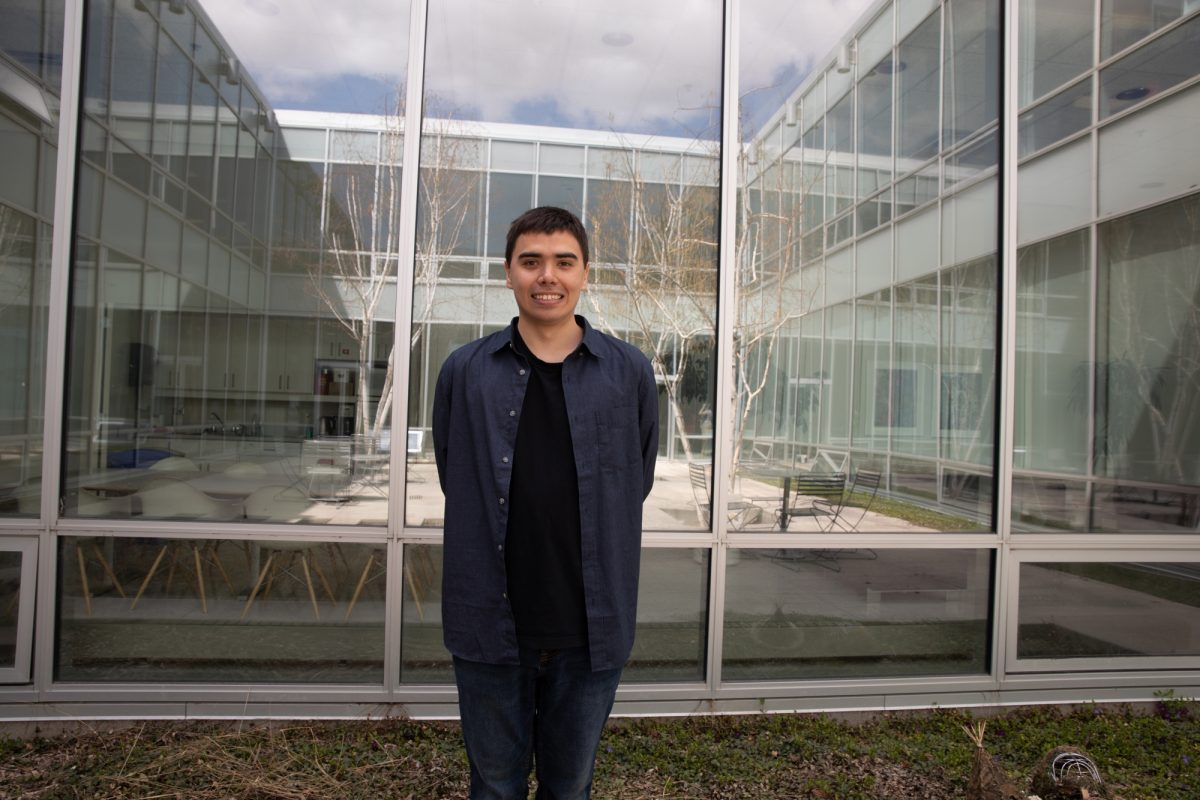
KYLE MONKMAN
2019 Vanier Scholar: Kyle Monkman
Monkman will be conducting his research in the Faculty of Science’s Department of Physics and Astronomy.
Kyle Monkman is one of six 2019 Vanier Canada Graduate Scholarship recipients from the University of Manitoba – a record setting year for the university.
These awards, considered the Canadian equivalent of the United Kingdom’s Rhodes Scholarships, help recruit and keep in Canada top doctoral students from across the country and around the world. Each recipient will receive $150,000 over three years toward their research.
Monkman will be conducting his research in the Faculty of Science’s department of physics and astronomy. UM Today caught up with Monkman to chat about how the Vanier Scholarship will help his thesis Time Dynamics in Topological Insulators.
Tell us about your thesis.
It’s the field of condensed matter in physics which is basically physics take on material science. I’m working on condensed matter theory which is basically theory of materials. In some sense, we’re studying properties and materials, but we study it from a mathematical point of view because I’m doing more theoretical condensed matter physics. It’s a lot of math. The Nobel Prize was awarded in 2016 on topological insulators. So it’s a big topic right now in physics.
What got you into physics are interested in physics in the first place?
My undergrad is in engineering. So as I went along in engineering, I was just drawn to physics courses so I decided I’m just going to try this course, and then I’ll try another course, and see where it takes me.
Did you take physics in high school, was there any interest there?
No, I didn’t take physics in high school. I took physics as an upgrade in engineering as I was part of the Engineering Access Program. That’s how I joined engineering, and I didn’t even have physics at that time. The Engineering Access Program actually taught me first year physics.
Tell us a little bit about your experience with the Engineering Access Program.
There’s so much to say about the Engineering Access Program. It offers so many different things for students. But I mean it’s kind of a home for Indigenous students in the sense it’s a home base and the staff goes above and beyond and becomes more than staff. They’re helping you with living circumstances and doing everything that they can from an academic standpoint, and also a like a university standpoint being an advocate for you and so there are many things to say about it. I met a lot of very good people there and I had a lot of encouragement.
Talk a little bit about the journey of writing your thesis.
Physics is somewhat challenging and it’s different than engineering, because in engineering it’s a little bit easier to understand what the topic is. In physics, it’s somewhat like time dynamics, topological insulators and all these big words. Even when you read the research papers it’s like that. For me coming from engineering I was like, what does this mean, what does this mean! So part of my goal in physics is to try to understand it from a point of view of how my peers and engineering friends would see it. So that has helped me I believe in some sense to kind of understand the physics material and then try to be able to explain it in a way that a more practical engineering type mindset would understand it.
It’s kind of two different like brains you have to flip on.
They’re very similar in some sense, but in terms of the work that you do on a day to day basis is similar but in terms of like explaining what are you working on, you could be talking about antennas in engineering which is super complicated but at least you understand it’s an antenna. But in physics, it’s not so much like that. It’s not clear really what it is and it takes many, many years before you’re able to explain exactly why it’s important.
What does it mean to you to receive a Vanier scholarship?
I feel like it just validates a lot of the way I went about my life. I feel like in some sense it felt like it validates decisions I’ve made with things that I’ve done. All the things to put on the application are things that you do and are something that you believe in. You decide I’m going to volunteer here, here and here or I’m going to do this, this and that and you don’t think about it. But you have to. You have to reflect. That was part of the process of writing it. It means a lot.
Where do you see yourself in five to 10 years from now?
I am very passionate about research and teaching. I really enjoy taking things and trying to teach them to different audiences. Sometimes you teach to undergrad and sometimes you do a presentation for your peers. I really enjoy that. So teaching would be something that I would be very interested in for my future.
Meet our other University of Manitoba Vanier Scholar recipients:
Elena Bilevicius
Ley Fraser
Andrew Hogan
Aleah Fontaine
Allison Balasko







Hello Mr. Monkman, I am interested to apply for the Varnier scholarship, and would like to learn from your experience regarding it. I can connect with you via email